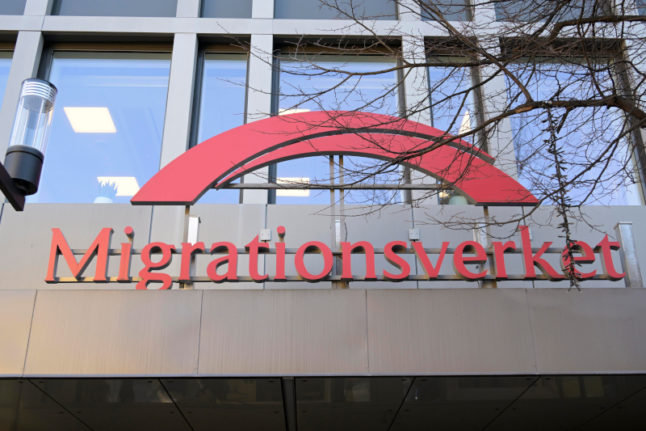Hej,
Two new laws which may have a huge impact on a lot of readers of The Local and this newsletter were voted into force in Sweden last week.
The first bill allows the government to hike the minimum salary required to receive a work permit from the current 13,000 kronor (roughly $1,260).
It was put forward by the Social Democrats when they still ran a centre-left government before the election, but the new right-wing government also wants to raise the threshold and Migration Minister Maria Malmer Stenergard said she wanted to do it as soon as possible.
The bill doesn’t state what the new minimum salary should be, but the right-wing parties have previously agreed to set it to the median salary in Sweden, which is about 33,000 kronor. So that’s what it’s likely to be.
In the best-case scenario, if I’m to be extremely generous, a higher salary requirement will help workers from getting exploited. A monthly salary of 13,000 kronor is quite low in Sweden – but on the other end of the scale, 33,000 kronor is fairly high, especially for young people, although some new IT graduates may scrape by. Full disclosure: I certainly did not earn that much when I moved back home to Sweden to work as a journalist.
The second bill launches a reform of the system of coordination numbers (identification numbers given to those who are not yet residents and thus not eligible for a personnummer, the ten-digit code that gives you access to much of Swedish life and admin), which is intended to both reduce fraud and make it easier for foreigners living in Sweden to use digital ID.
I’m keen to see how this one plays out. The personnummer is, like many things in Sweden, great if you have one, a real headache if you don’t.
My colleagues at The Local have taken a look at the impact that the reform of the coordination numbers could have – here’s a link to their article.
In other news
The Swedish government has promised to carry out the first national census in more than 30 years. This article explains what we know about the plans, and when and if it is likely to happen. That motion was passed by chance back in April, after the business minister at the time accidentally pushed the wrong button. I believe the technical term is “oops!”.
The Social Democrats jump ahead in the first major poll by national number-crunchers Statistics Sweden since the election. If an election were held today, 34.6 percent of respondents say they would vote for them – a statistically significant increase of 4.3 percentage points since the election.
The Left Party is up 0.9 percentage points to 7.6 percent.
The same poll sees a statistically significant drop in support for in particular the far-right Sweden Democrats (down 2.3 percentage points to 18.2 percent) but also for the Centre Party and Green Party.
The rest of the changes are not statistically significant, but if you’re interested you can find them all on Statistics Sweden’s website.
The government has been criticised after it decided not to extend a project that awarded state funding to the Swedish Committee Against Anti-Semitism (SKMA) for informing teachers and pupils in lower secondary school about the Holocaust, anti-Semitism and racism.
After that story was published by the left-wing ETC newspaper, it’s become increasingly unclear what’s going to happen. The government has said that it will instead present a substantial package this week to combat anti-Semitism, which will also include money earmarked for the SKMA.
So we’ll have to wait and see. I’ll get back to you next week.
What’s next?
The court is expected to pronounce the verdict and sentence against Theodor Engström tomorrow. The 33-year-old Engström is accused of (and has pleaded guilty to) murdering psychiatrist Ing-Marie Wieselgren at Sweden’s political festival Almedalen Week earlier this year.
The prosecutor during the trial urged the court to sentence him to life in jail for what was also described as a terror offence, designed to instill fear in the Swedish public. One of the other intended targets was Centre Party leader Annie Lööf, although Engström was caught before attacking her.
The defence on the other hand argued that as Engström was affected by a serious psychatric disorder at the time of the murder he should instead receive forensic psychiatric care, specialised care for convicted criminals.
On Sunday, the leaders of Sweden’s eight parties will go head to head in the first major televised debate since the election.
They were supposed to have appeared last Sunday, but both Prime Minister Ulf Kristersson and Sweden Democrat leader Jimmie Åkesson caught colds, so it was postponed.
You can watch it here (in Swedish) and don’t quote me on this but I believe it will be available to watch wherever you are in the world, not just in Sweden.
Sweden Elects is a weekly column by Editor Emma Löfgren looking at the big talking points and issues after the Swedish election. Members of The Local Sweden can sign up to receive the column as a newsletter in their email inbox each week. Just click on this “newsletters” option or visit the menu bar.



 Please whitelist us to continue reading.
Please whitelist us to continue reading.
Member comments